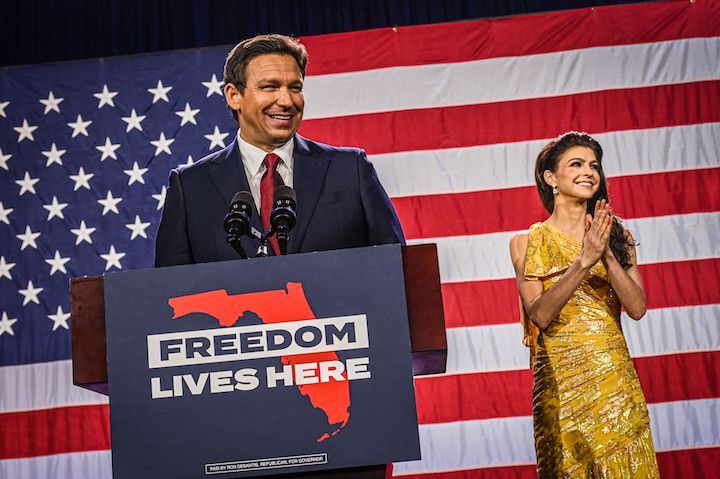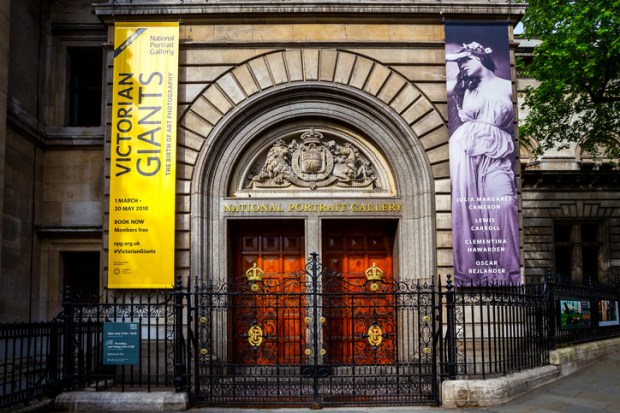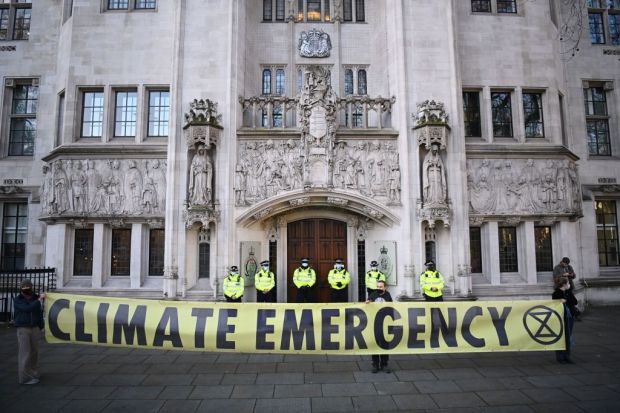Florida governor Ron DeSantis is shaping up as the GOP’s best hope for next year’s US presidential election. Large parts of his popular appeal are his open attack on (now fairly well-established) left-wing infiltration in education and to some extent in commerce, and his expressed intention to make Florida the state ‘where woke goes to die’. Hitherto his success has been limited. But recently there have been signs that he may be learning from his mistakes.
His troubles started with a failure to grasp that a direct legal attack on left-wing influence, however electorally popular, was likely to be doomed. However fed up Floridians might be with the spoutings of left-wing professors – and a corporate culture where wokery was not so much encouraged as compulsory – you couldn’t just ban them.
This became clear after the state legislature passed the Individual Freedom Act (otherwise called the ‘Stop Woke Act’) last April. This prevented state universities and schools advocating the need for positive discrimination rather than colour-blind treatment; suggesting that any one race bore guilt for past sins or had racism hard-wired into it; or teaching that race or sex determined one’s status as oppressor or oppressed. It also made illegal the promotion of these views by employers in compulsory training, or the disadvantaging of any employee who refused to accept them.
You might have thought this to be fairly uncontroversial – at least if you were not a teacher, amateur urban middle-class activist or part of the new management class obsessed more with public relations than effective action. The views the law attacked amounted, after all, to an open denial of the enlightenment values of empiricism and rationalism and of the role of intellectual argument. It also highlighted a demand to replace them with the unprovable assertion of a cult of activists that race, sex and gender must form the start and end point of politics and social policy. In the case of employees, the law also struck a chord with individualist and libertarian voters unhappy with the propensity of employers to compel workers to undergo what they saw as clear political indoctrination.
However fed up Floridians might be with the spoutings of left-wing professors, you couldn’t just ban them
This was all true. However, the law also directly impacted another enlightenment value: free speech. This was fatal. Federal judges very quickly stymied it on First Amendment grounds as regards both employers and universities. They pointed out that, like it or not, the law openly prevented employers and professors from publicising one viewpoint while allowing and encouraging them to espouse its opposite, which was exactly what the constitution prohibited.
Counter-intuitively, this failure of the direct attack should probably be cheered by conservatives. Whatever the immediate discomfort to the GOP, the judges’ views are not only fairly solid legally but accord neatly with the classical liberal view of free speech, under which even irrational and illiberal beliefs should be permitted. The antidote being counterargument rather than suppression.
There are some welcome signs that DeSantis now recognises this. Last week, however, two events showed that, at least in public education, he was prepared to return to the offensive in a more subtle – and in the long run, probably more successful – way.
The first involved using the old-fashioned power of the purse. True, this can’t be done by way of direct dictation: government cannot openly fund the propagation of one political viewpoint but not its opposite without falling foul of the First Amendment. But a more indirect approach may work. DeSantis has quietly demanded from all state universities and colleges details of how much tax money they spend on administrative diversity, equity and inclusion programmes. His thinking is clear: such programmes are known for promoting critical race theory and similar questionable ideas as articles of faith to employees and faculty alike, and their continued funding is up for debate. Professors are unhappy, seeing this as an all-out attack on free speech and higher education. But it’s hard to see that they have much to complain about. Preventing the propagation of a particular point of view is one thing. Refusing to fund administrative programmes the state sees as unnecessary and pernicious is different. Not only is it constitutionally a good deal safer, it is probably good educationally – and in any case, the remedy for those who don’t like it ought to be political rather than legal.
The second intervention concerned the power of patronage. By law DeSantis, as Florida state governor, has the right to nominate six governing trustees of the New College in Sarasota, a state liberal arts college and bastion of aggressively liberal views. DeSantis announced last Friday that his appointments would be conservatives, including high-profile culture warriors Chris Rufo and Matthew Spalding, who have no time whatsoever for critical race theory or its offshoots and would fairly clearly change the college’s ethos. Liberals, predictably supported by the New York Times, were up in arms. But here too the complaints were unconvincing. A governor’s right to appoint trustees is presumably there precisely to give an element of democratic accountability: there seems no reason why he should not appoint those he agrees with, particularly as it seems he has no intention of interfering with the tenure or freedom of speech of the existing faculty. The liberals are clearly unhappy that their almost complete control of the institution is about to be challenged, and probably successfully: but what is wrong with that?
We will have to see how this works out. But for the moment the signs are that DeSantis and the people who elected him may be beginning to make inroads into left-wing control of the institutions, at least in his home state. If successful, this may have further effects nationwide. His political offering, of red-blooded populist conservatism without Trump’s peculiarity and general baggage, already makes him the clear favourite for the Republican primaries. He is very much a candidate to watch for next year, whoever the Democrats end up pitching against the GOP. And he may soon become even more so.
Got something to add? Join the discussion and comment below.
Get 10 issues for just $10
Subscribe to The Spectator Australia today for the next 10 magazine issues, plus full online access, for just $10.



















Comments
Don't miss out
Join the conversation with other Spectator Australia readers. Subscribe to leave a comment.
SUBSCRIBEAlready a subscriber? Log in